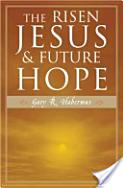It is always and honor and the privilege to be asked to speak at the summer conference. This year was a bit unique for me. In addition, to preaching Monday morning I was asked to speak to the teens Sunday evening. This invitation was the result of a series of lessons I taught the teens at the 2009 Teen Winter Retreat at Fort Faith Camp in Morley, Michigan. In February I presented 5 lessons entitled Grace Based Apologetics, designed to teach the young people some introductory things about Apologists from a grace view point. The teen's response to these messages was overwhelming positive and ultimately resulted in an invitation to speak to them again at the July conference.
If you haven't noticed we face a serious challenge of keeping second, third, and fourth generation Grace kids in the message. Having been brought up in a Grace church myself I became keenly aware of this problem a couple years ago. The majority of the young people I grew up with in church have long since departed the doctrine for a variety of reason. While in Bible College I witnessed a similar phenomenon as numerous friends of mine abandoned the Grace Message. Some departed the faith through philosophical exploration and confusion, in favor of Atheism. While others left the message through their decision of who to marry. Why would a young person who has been raised in a good Grace home willfully disregard Scripture and marry and unbeliever? One would not be incorrect to offer fleshly desires and worldly wisdom as well as a blatant disregard for the authority of Scripture as the primary reasons for these departures. We know from Paul's letters that many people who were once grounded in the doctrines of Grace and even aided Paul in the work of the ministry departed the faith having loved the world more than the doctrine.
Naturally as a second generation Grace Believer who now has two boys of his own, I have spent much time pondering this subject. First Generation Grace Believers often have a religious epiphany where they come to see the uniqueness of Paul's message and apostleship and it liberates them from the legalistic oppression of the religious system. Consequently, the First Generation has a theological reference point from which they appreciate in an intimate way the liberating freedom that comes from Grace. Having now been set free the constraints of Churchianity, First Generation Grace Believers, rightly devote much time and attention to making sure their kids grow up understanding the message. The children are brought to church, youth group, and conferences in an effort to train them up in the nurture and admonition of the Lord. Meanwhile, the Second Generation grows us knowing nothing but Grace teaching but lacks the comparative theological reference point of their parents. Herein lies the danger, I fear that many of our Grace Young people are making Grace their religion. Our young people are schooled enough in the word and doctrine to answer all of the questions correctly when asked by adults but either lack a depth of understanding or secretly question the veracity of what they have been taught to believe.
As a result, when I spoke to them on Sunday evening I titled my lesson, The Four Great Challenges Facing Grace Young People. I approached this lesson from the vantage of point of seeking to indentify the four central issues that are most responsible for our young people departing the message. After much consideration I settled on the following four issues:
- Acceptance
- Decision of who to marry
- Postmodernism and the questioning of the absolute nature of Grace truth
- Grace Religion
Perhaps not unexpectedly my presentation was both unexpected and unwanted based upon the fair number of groans I heard when they were informed of the impending study. After making it through their disappointment over having to listen to yet another Bible study they warmed up and asked many good and insightful questions during the question and answer time that followed. Toward the end of my time with them I asked them if the four issues I presented were in fact issues that they struggle with. Ninety five percent of them raised their hands indicating that they have struggled with the subjects discussed in my lesson. Finally, I concluded my talk by asking them the following question, "If you could play your own conference what would be the five topics that you would want to know about?" The following are the topics they suggested:
- How to pray not how not to pray?
- How to make their faith real in their lives?
- How to know for sure that the Bible is the Word of God?
- How to know for sure that the King James Bible is the only Word of God for English speaking people?
- What about Music?
Personally, I find these suggestions instructive about where our young people are at. They are struggling with some of the fundamental features of the Message of Grace. I hope that as adults we can listen to needs of young people and engage them in an honest dialogue about their questions rather than chastising them for not being as far as we think they ought to be. These young people are lovely, sincere, fun, and bright individuals we need to make every effort to answer their questions so that the propagation of the wonderful message of Grace continues into the next generation.
To view a copy of my notes on The Four Great Challenges Facing Grace Young People
click here.
To view a copy of my notes on Grace and Truth: Grace in the Kingdom Program
click here.

























